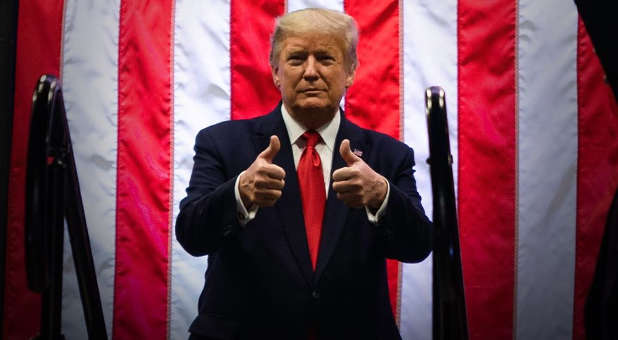Racial Healing in America: Trump Must Champion Criminal Justice Reform
As news broke of the peaceful protests following George Floyd’s shocking death, I was reminded of these words from Scripture: “Seek justice, correct oppression; bring justice to the fatherless, plead the widow’s cause” (Isa.1:17, ESV).
The Bible clearly teaches that we have a sacred duty to advocate for the vulnerable and defend the weak. In America today, that means taking up the fight to end racialized violence and enact criminal justice reform.
The United States has a history of bad criminal justice policy. For decades, policymakers and political leaders have conflated criminal justice with mass incarceration. To protect peace, uphold the law and preserve order, we’ve built a system of “tough on crime” policing, aggressive overcriminalization and mandatory minimum sentences. We’ve treated imprisonment as the universal solution for any and all criminal behavior. And at the same time, we’ve built a prison system that does almost nothing to rehabilitate and reform criminals.
The results speak for themselves. Despite comprising only 5% of the world’s population, the U.S. houses over one-fifth of the world’s prisoners. With 2.3 million people in prison, America incarcerates its citizens at the rate of 698 out of every 100,000. But that’s not all.
America’s prison system doesn’t just incarcerate individuals at a high rate; it also destroys families, and it can forever ruin lives. Over 5 million children in the U.S. have suffered from having at least one of their parents imprisoned. According to data collected in the mid-2000s, 250,000 American children had a mother in jail at the time, while an additional 150,000 had a mother in prison. Children like these with incarcerated parents are more likely to end up in foster care and are six times more likely to develop substance abuse disorders and mental illness.
And when parents do get out of prison, their families often face extreme financial hardship, leading to a cycle of crime and intergenerational poverty. In America, recidivism rates are outlandishly high. Inmates released from state prisons, where most prisoners are held, have a recidivism rate of 76.6%. So, it’s not just that a lot of people go to prison in America; for millions of Americans, prison follows them throughout their whole life and hangs like a shadow over their families.
It’s here that we need to talk about race. America’s already broken criminal justice system has a long history of racial discrimination. African Americans are incarcerated nearly six times more frequently than white Americans. In 1990, 1 in 4 African American children had a parent in prison, compared to 1 in 25 white children. And, as George Floyd’s death tragically reminds us, African Americans are 2 1/2 times more likely to be killed by police than white Americans. The disparate impact of America’s criminal justice system on people of color is obvious and undeniable.
In the face of mass incarceration and a racialized criminal justice system, we need Americans of every race and creed to stand up for the biblical admonition found in Proverbs 31:8-9, “Speak up for those who cannot speak for themselves, for the rights of all who are destitute. Speak up and judge fairly; defend the rights of the poor and needy.”
But here’s the thing: If we really want the kind of criminal justice reform that can truly improve the lives of all Americans, black, brown and white, then we need Trump.
By now, many Americans are aware that President Trump has taken bold steps to repeal the 1994 Crime Bill, led by Bill and Hillary Clinton and then-Sen. Joe Biden. After over three decades of mass incarceration, the First Step Act has led to the release of many nonviolent offenders from prison. In fact, the total number of Americans detained by the federal Bureau of Prisons currently is down to about 165,000, the lowest number since 2002, and down from its all-time high of 219,000 in 2013.
But Trump is also helping former inmates to rebuild their lives and provide for their families. The Second Chance Act incentivizes American businesses to hire former prison inmates and aids states in ensuring successful transitions post-release. And combined with his strategic creation of opportunity zones, which incentivize investment in underserved black and brown communities, Trump is leading a revolution to bring economic opportunity and well-being back to the vulnerable communities that need it most. We shouldn’t forget that, under Trump, black unemployment reached the lowest levels ever recorded.
And as if that weren’t enough, Trump has also secured hundreds of millions in funding for black colleges and universities, and he is leading the charge in ending the HIV epidemic that disproportionately affects black communities.
The fact is that Trump is an ally, not an enemy, in the fight for ending racial inequalities and reforming the criminal justice system.
We can’t afford to make race and criminal justice reform a partisan issue. Americans of every race must mourn the victims of our broken criminal justice system and deep-seated racial hatreds. But we can chart a course forward. Reform and healing are possible. With Trump in office, now is the right time to fight for it. {eoa}
Timothy Head is the executive director of the Faith & Freedom Coalition.














































